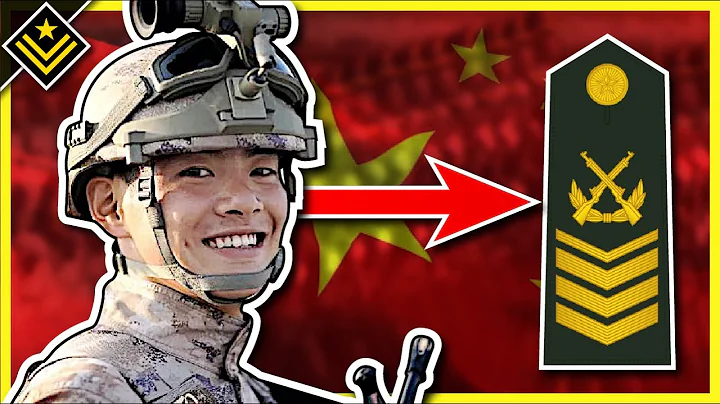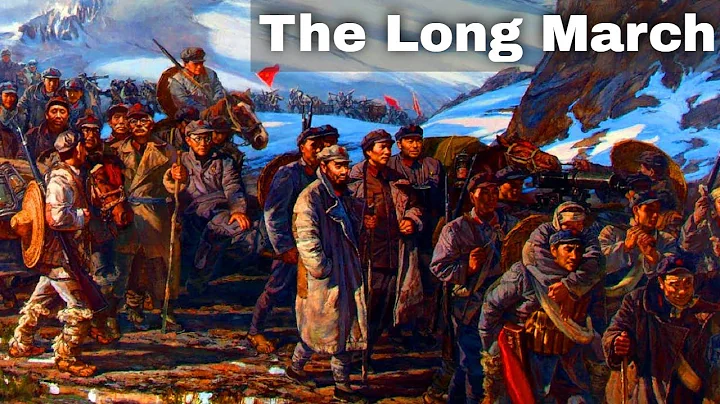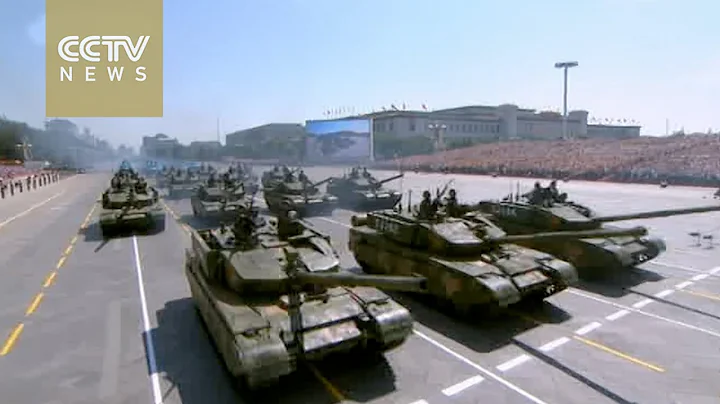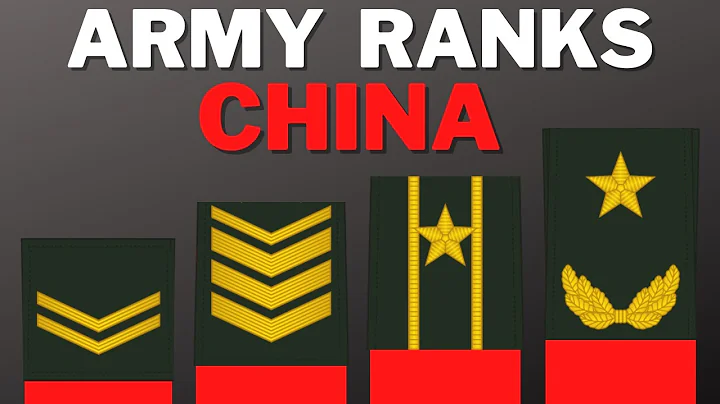In March 1952, local and military cadres at all levels in the Republic began to grade. In the rating work, the cadres’ rating standards within the party are generally based on the administrative positions they hold. Intra-party positions refer to administrative positions, and the evaluation levels are based on their respective administrative positions. The one with the highest party and government position shall prevail. Whichever position is higher will be graded according to that position. In March 1952, serving members and alternate members of the Seventh Central Committee of the Communist Party of China all participated in the rating work in the party, government and military agencies where they served. This issue will specifically introduce the ratings of the Central Committee of the Communist Party of China, Government Affairs Council and the six major administrative regions in 1952. The ratings of 13 representative members of the Central Committee and alternate members of the Central Committee are analyzed. The ratings of Central Committee members and alternate members of the Central Committee in the first half of 1952 are analyzed.
First, in 1952, 13 representative Central Committee members and Central alternate members were appointed by the Party Central Committee, the Government Affairs Council and the major administrative region governments.
After the rating work was fully launched in March 1952, the people's governments of the six major administrative regions followed the ratings announced by the Government Affairs Council. According to the standards, cadres at all levels have carried out their own rating work. According to the rating authority, the ratings of leaders at or above the provincial (department) level in each major administrative region will be assessed by the governments of each major administrative region and then reported to the Central People's Government for approval. Members of the Seventh Central Committee and alternate members of the Central Committee respectively participated in the rating work of the governments of their major administrative regions. After comprehensive evaluation by the people's governments of each major administrative region and the central bureaus where they are located, they were reported to the central government for review and determination of their administrative levels. The following will list the 52 years of administrative service of 13 representative Central Committee members and alternate members from major administrative regions, and analyze the ratings of Central Committee members and Central alternate members:
(1), Northwest Bureau and Northwest Military Political Commissar:
- Ma Mingfang (Alternate Member): Joined the Party in 1925, Third Secretary of the Northwest Bureau, Secretary of the Shaanxi Provincial Party Committee and Chairman of the Provincial Government
(2), Political Commissar of the Southwest Bureau and Southwest Army:
- Zhang Jichun (Alternate Member): Joined the Party in November 1926, Southwest Member of the Standing Committee of the Bureau and Director of the Organization Department, Deputy Political Commissar and Director of the Political Department of the Southwest Military Region
- Song Renqiong (alternate member): Joined the Party in December 1926, Member of the Standing Committee of the Southwest Bureau, First Secretary of the Yunnan Provincial Party Committee, Deputy Political Commissar of the Southwest Military Region
(3), East China Bureau and East China Military Political Commissar:
- Zeng Shan (Member of the Central Committee): Joined the party in October 1926, Political Affairs Councilor and Minister of the Ministry of Textile Industry, Vice Chairman of the East China Military Political Commissar
(4), Central and South Bureau and Central and South Military Political Commissar
- Huang Kecheng ( Central Committee member): Joined the party in 1925, member of the Central and South Bureau, Secretary of the Hunan Provincial Committee
- Zhang Yunyi (Member of the Central Committee): Joined the party in October 1926, Chairman of the Central People's Government, member of the Military Commission, Secretary of the Guangdong Provincial Committee and Chairman of the Provincial People's Government
( 5), North China Bureau and Government Affairs Council North China Personnel Department
- Liu Lantao (alternate member): Joined the party in September 1928, third secretary of the North China Bureau, Minister of North China Affairs Department of the Government Council
- Ulanfu (alternate member): Joined the party in September 1925, Central Committee Member of the People's Government, Secretary of the Inner Mongolia Branch, Chairman of the People's Government of the Inner Mongolia Autonomous Region Chairman
(6), Northeast Bureau and Northeast People's Government:
- Lin Feng (Member of the Central Committee): Joined the Party in March 1927, Deputy Secretary of the Northeast Bureau, Vice Chairman of the Northeast People's Government
(7), ministries of the Government Affairs Council:
- Teng Daiyuan (Member of the Central Committee): Joined the Party in October 1925, Political Affairs Councilor and Minister of Railways
- Li Fuchun (Member of the Central Committee): Joined the Party in 1922, Political Affairs Councilor and Minister of Heavy Industry
(8), Communist Party of China Ministries of the Central Committee:
- Lu Dingyi (Member of the Central Committee): Joined the Party in the winter of 1925, Minister of the Propaganda Department of the Central Committee, Deputy Director of the Culture and Education Committee of the Government Affairs Council
- Wang Jiaxiang (Member of the Central Committee): Joined the Party in February 1928, Minister of the International Department of the Central Committee, Vice Minister of Foreign Affairs

2. Rating criteria for Central Committee members and Central alternate members in March 1952
In March 1952, there were 13 representative members of the Seventh Central Committee of the Communist Party of China, including 8 Central Committee members (including 2 who were by-elected by alternate members) Central Committee member) and 5 alternate members of the Central Committee. Among the 13 people rated in March 1952, 5 were rated as administrative level 3, 7 were rated as administrative level 4, and 1 was rated as low as administrative level 5.13 people were rated from administrative level three to administrative level five according to the rating standards promulgated by the central government. Except for one person who was downgraded to administrative level five due to the influence of the three-anti movement at that time, the other 12 people all checked in and met the rating standards and were rated as administrative level three or four. The specific statistics and rating basis of the 13 people in 1952 are:
1. Central Committee members and Central alternate members (3 people) who were rated as administrative third-level members of the Central People's Government:
- Zhang Yunyi, Lin Feng; Ulanfu
According to 1952 3 According to the rating standards for cadres at all levels announced by the central government in March, the rating standards for members of the Central People's Government are administrative level three. According to this rating principle, Central Committee members Zhang Yunyi and Lin Feng, who were members of the Central People's Government at the time, and Central Alternate Member Wu Lanfu were rated as administrative level three. At the same time, Zhang Yunyi participated in the military rating, and his military service rating as a member of the Military Commission was rated as a member of the Military Commission.
Second, senior Central Committee members who joined the Party in the early days of the founding of the Party or individual Central Committee alternate members who served as Secretaries of the Central Bureau were rated as administrative level three (2 people):
- Li Fuchun; Ma Mingfang
After the rating work began in March 1952, regarding the relationship between the members of the Seventh Central Committee and the Central Committee The central government has specially stipulated the rating of alternate members. Those who serve as members of the Central People's Government are generally rated as administrative level three. Those who serve as political affairs committee members, ministers of various departments of the Party Central Committee or other positions are generally rated as administrative level four. Individual senior members who joined the party in the early stages of the founding of the party are generally rated. A member of the Central Committee or the then Secretary of the Bureau of the Central Committee may be rated as Administrative Level 3. According to the rating principles formulated by the central government, Li Fuchun, who joined the party in 1922, and Ma Mingfang, then the third secretary of the Northwest Bureau, were rated at the administrative level three. Although Li Fuchun, a member of the Central Committee, was a political affairs committee member at the time and should have been rated at the administrative level 4 according to his position, he was a senior party member who joined the party in the early days of the founding of the party, so he was rated as an administrative level 3 by the Central Committee. Government members and two Central Committee members rated administrative level three. Ma Mingfang, an alternate member of the Central Committee, was given a high rating of administrative level three because he served as the third secretary of the Northwest Bureau. In 1954, after Ma Mingfang was transferred to the deputy director of the Organization Department of the Central Committee of the Communist Party of China, he took the initiative to apply to the central government for downgrading to the fourth administrative level.

Three, Central Committee members are rated as administrative level four (4 people):
- Teng Daiyuan, Zeng Shan; Wang Jiaxiang, Huang Kecheng
According to the central rating regulations in March 1952, Central Committee members who serve as political affairs committee members or ministers of various departments of the Party Central Committee and other positions are generally rated as administrative Level four. According to this standard, Teng Daiyuan and Zeng Shan, who were political affairs committee members at the time, and Wang Jiaxiang, director of the Central External Relations Department, were rated as administrative level four. Huang Kecheng, who was secretary of the Hunan Provincial Party Committee, was also rated as administrative level four because he was a by-elected member of the Central Committee.
The 1952 rating standards stipulate that the ministers of the Government Affairs Council are generally rated at the administrative level five, while the ministers of the Party Central Committee are one level higher than the ministers of the government ministries, and are generally rated at the administrative level four. Although Wang Jiaxiang, then the first deputy minister of the Ministry of Foreign Affairs, had a slightly lower administrative position, his party appointment rating as minister of the Central External Relations Department was administrative level four. Huang Kecheng and Zhang Yunyi, who are both members of the Central Committee and secretary of the Provincial Party Committee, are one level different in rating. Huang Kecheng is at the administrative level four, which is lower than Zhang Yunyi's administrative level three. Zhang Yunyi's appointment as a member of the Central People's Government is the main reason why he is one level higher than Huang Kecheng. In October 1952, Huang Kecheng returned to the army and served as the third deputy chief of staff and director of the General Logistics Department. His rank was changed from the fourth level of local administration to the level of member of the Military Commission of the Army.
Four, Central Alternate Members are rated as Administrative Level 4 (3 people):
- Zhang Jichun, Song Renqiong, Liu Lantao
According to the rating standards for cadres at all levels announced by the Central Committee in March 1952, the rating standards for Central Alternate Members follow the example of Administrative Affairs Committee members, and the general rating is Administrative Level 4, which can be lowered as appropriate for individuals who feel unwell. According to this rating principle, Zhang Jichun, Song Renqiong, and Liu Lantao, who were then alternate members of the Central Committee, were rated as administrative level three. Although Liu Lantao was the third secretary of the North China Bureau and had the same level of party position as Ma Mingfang, Liu Lantao's work focus at that time was He served as the Minister of the North China Affairs Department of the Government Affairs Council and was a minister-level cadre of the Government Affairs Council.Comparing the time when the two joined the party, Ma Mingfang joined the party during the Great Revolution, while Liu Lantao joined the party in 1928. Therefore, Liu Lantao was rated one level lower than Ma Mingfang, who was in charge of party affairs in northwest , and was rated as administrative level four. Song Renqiong participated in the local rating during the 1952 rating, and was rated at the administrative level four as an alternate member of the Central Committee and Secretary of the Yunnan Provincial Party Committee. In November 1954, Song Renqiong returned to the army and served as the first deputy minister of the General Cadre Department. His rank was upgraded from the administrative fourth level to the army to the corps level.

Five, affected by the Three Antis movement, Central Committee member Lu Dingyi was downgraded to administrative level five, and restored to administrative level four in 1954.
When the rating work began in 1952, when the three antis movement was in full swing, he was then the Minister of the Central Propaganda Department Lu Dingyi's wife Yan Weibing was identified as a "big tiger" during the Three Antis movement. Due to his wife's influence, Lu Dingyi was demoted and demoted. He was originally planned to be graded to administrative level four, but later he was demoted one level to administrative level. Level 5, becoming the second Central Committee member to be rated administrative level 5 after Wang Ming. Lu Dingyi was also demoted from the former Minister of the Central Propaganda Department to Deputy Minister of the Central Propaganda Department. In September 1954, Lu Dingyi was reinstated as Minister of the Central Propaganda Department, and his administrative level was restored from Administrative Level 5 to Administrative Level 4.






















